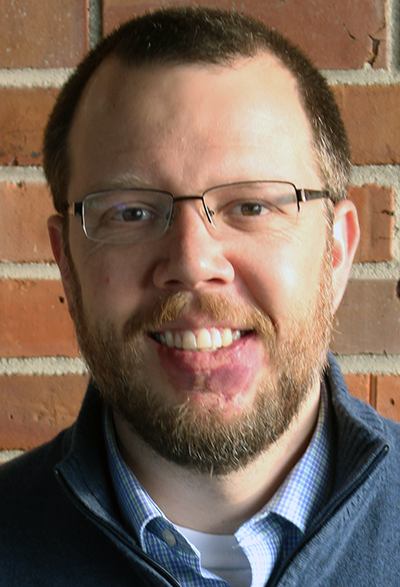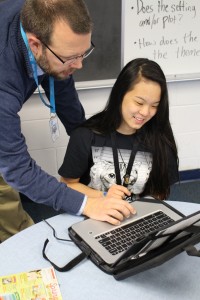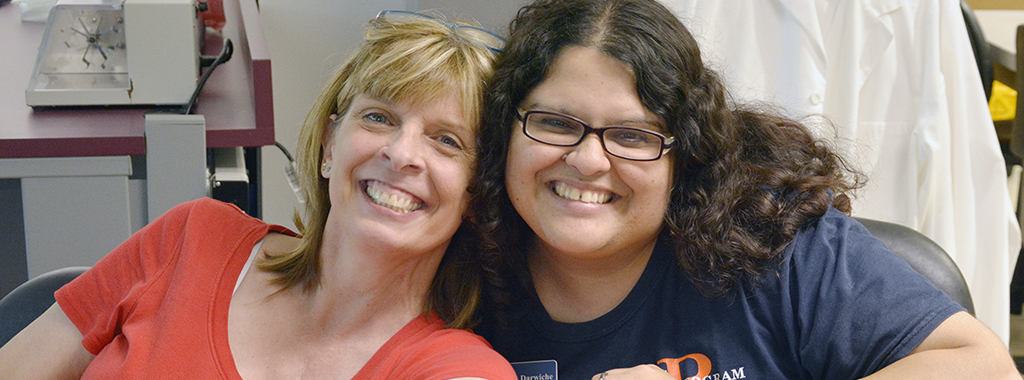How Outstanding Young Alum saved his teaching career
Jon Mundorf was considering quitting the profession after three years of teaching elementary school in Naples, Florida.
He felt frustrated and ineffective despite doing his best to follow the top teaching methods, curriculum, and steps laid out in educator manuals.
“Only a small number of kids really got it when I would teach,” Mundorf says.
Some did not speak English, others had behavior problems or any number of learning disabilities. He came to realize: The standardized teaching methods he was using were ineffective because his students weren’t standardized.
In the summer of 2006, Mundorf decided to look for a better way to teach and give his career a spark.
He found it. He learned new teaching methods that are designed for educators to more effectively reach all their students, and he has gone on to become an award-winning teacher, and an internationally recognized practitioner of teaching to meet the needs of all learners.
Young Alumni Award
Today (April 8), Mundorf, 36, received the UF College of Education’s Outstanding Young Alumni Award, one of 23 Gator alumni across campus who will be honored as leaders in their professions at a ceremony at Emerson Alumni Hall.
Mundorf’s story surely holds lessons for other teachers who are early in their careers, when research shows a high percentage leave the profession.
Mundorf, Ed.D., is a 2014 graduate of UF’s online doctorate in curriculum and instruction program, which is designed to strengthen the skills of practicing educators. His dissertation was about his experience of using universal learning methods to teach a blind student to read in his integrated classroom.
This school year, he joined UF’s P.K. Yonge Developmental Research School, where he teaches seventh grade language arts.
“Dr. Mundorf brings to our classrooms extensive knowledge and many years of experience in leveraging technology and non-tech strategies for supporting the needs of each learner,” P.K. Yonge Director Lynda Hayes says. “He is a dedicated practitioner scholar committed to providing the best possible seventh grade English language arts experience for our diverse students.”
Universal Design for Learning
Mundorf credits his transformation to a decade ago when he entered Harvard Graduate School of Education’s summer institute on universal design for learning (UDL), a partnership with the nonprofit Center for Applied Special Technology (CAST), which now includes Mundorf among its teaching cadre. UDL is a method of using inclusive teaching methods to meet the needs of all learners.
“Upon returning from Harvard, I reinvented myself as a teacher,” Mundorf wrote in his UF dissertation. “Instead of focusing and complaining about the disability I saw in my students, I chose to target the disability in our curriculum. The barriers within the curriculum were minimized because I had developed a student-centered stance for exploring the curriculum with my students.”
Mundorf’s ability to engage an audience with his love of teaching is striking, and he can turn a brief interview into a lively hour-and-half discussion of his teaching philosophy, education research findings and lessons he has learned along the way.
A native of Cuyahoga Falls, Ohio, Mundorf often wears a jacket bearing the logo for Bowling Green State University, where he earned his bachelor’s degree in education. He also has a master’s degree from Florida Gulf Coast University and joined the small ranks of teachers certified by the National Board for Professional Teaching Standards, a nonprofit that aims to advance accomplished teaching for all students.
In an example of his inclusive teaching methods, Mundorf says he provides choices in how a student engages with reading materials, providing audio-visual, text-to-speech, captioning, and, if necessary, Braille formats. His students also have choice in how they express their grasp of the subject, such as writing an essay, making a speech or giving a visual presentation.
This way, students with high-incidence disabilities, such as dyslexia – by some estimates up to 20 percent of students – as well as less common disabilities like blindness are given a better opportunity to succeed.
“We allow students multiple ways to learn, engage, and demonstrate mastery,” Mundorf says. “If I only give them one way, it leaves some out.”
Mundorf is in demand to teach not only students but other educators. He has consulted with schools and organizations on inclusive teaching practices, accessibility, technology integration and other ways to improve teaching and learning. In the fall of 2015, he traveled to Fukuoka, Japan, to provide the keynote speech and lead a workshop on inclusive classroom instruction at the National Conference of the Japanese Academy of Learning Disabilities.
Mundorf says students will succeed in the 21st Century not by memorizing all the prepositions in the English language. They will succeed by becoming expert learners. And the same goes for teachers.
“Teaching can be extremely challenging and there is no one right way to do it,” he says. “You have to constantly work at it to reach all the learners. When you feel like you have figured it all out, the next day things change. Teachers have to be the lead learners in this effort.”
Source: Jon Mundorf, P.K. Yonge Developmental Research School; 352-392-1554
Writer: Charles Boisseau, UF College of Education, news and communications office







